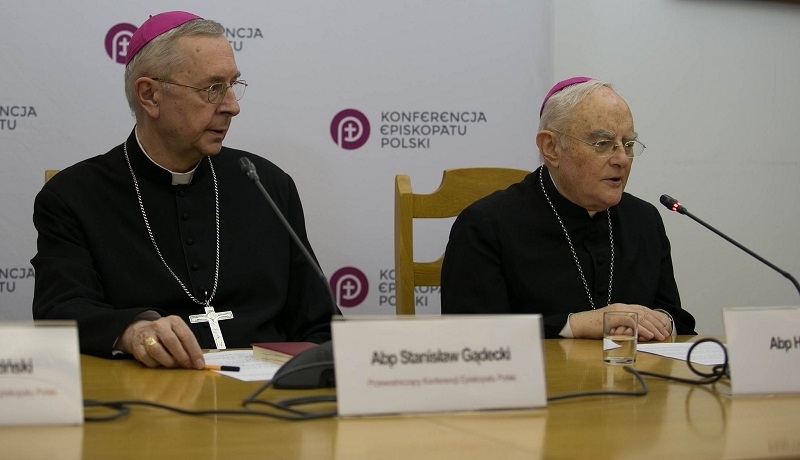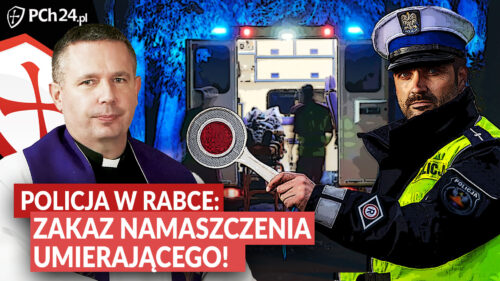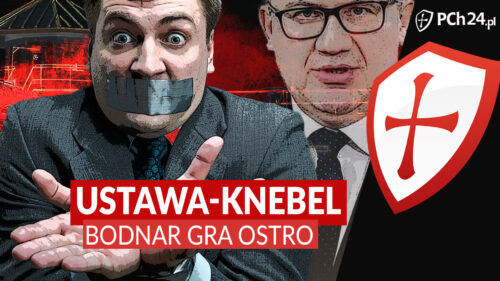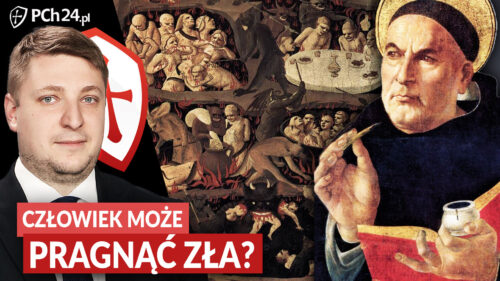Although Polish bishops have not determined the date when their long-awaited document related to the exhortation Amoris Laetitia will be promulgated, we learned some very important facts about it during the recent two-day assembly of the Conference of Polish Bishops.
Those bishops, who have commented on the progress of their work on the document, use some key-words which are well-known to observers of Church life and which are used in relation to non-sacramental unions: discernment, accompanying, and inclusion in the Church community. The hierarchs don’t talk about the objective situation of sin in the case of people who have abandoned their spouses, but about an individual approach in each case. Bishop Jan Wątroba’s words suggest that it is confessors who will be responsible for declaring marriages invalid.
Wesprzyj nas już teraz!
“A deep reflection on the forms of caring for marriage and family in the light of the exhortation Amoris laetitia is being undertaken. While preserving the teaching of the Church, the Bishops drew attention to the necessity of accompanying marriages, both on the path of sacramental fidelity and in the discernment of irregular situations. Stressing the irreplaceable role of the Sacrament of Matrimony, the Bishops would like to thank spouses for their witness to permanent love and involvement in the life of the Church” – the Bishops wrote in their communiqué from the 378th Plenary Assembly of the Conference of Polish Bishops.
In a press conference summing up the assembly, Archbishop Henryk Hoser elaborated on the ideas mentioned in the quoted document. His statement included the following opinions:
– The Conference of Polish Bishops have been reflecting on the post-synodal apostolic exhortation Amoris Laetitia for the past two years. Some might ask why it has taken us so long? The reasons are quite evident. First of all, the document covers a number of topics. Just as each family, being the basic building block of the Church and society, concentrates in itself – so to speak – all the threads of life. It is reflected in a very extensive document, much larger than any other such previous documents – the hierarch pointed out.
– It isn’t a dogmatic document, in fact – the Archbishop stressed – when you read it, it shows that the Church’s teaching from previous pontificates has been confirmed. There are over 30 quotations from Pope John Paul II. (…) This document is a pastoral one and introduces a completely new format into our pastoral work, a format which actually still needs to be created, as pastoral work has been based on collective teaching and formation. Two words show a novelty in this approach. This is “accompanying” and “discernment”. In order to accompany and discern you need to make a transition to individual pastoral work, and at the time – which might vary a lot – accompany those people who are evolving in their family and marital life, and at the same time – actually help them discern their situation of not only – as we imagine – informal unions, but also of a series of marital crises which are unavoidable in many years of marital life – said Archbishop Hoser.
The Archbishop announced that a new pastoral guidance for the family apostolate would be drawn up. As he said, in relation to “irregular unions” the hierarchs would prepare a series of proposals which aim at including these people into the Church community.
We asked Archbishop Henryk Hoser what the Polish hierarchs thought about concerns expressed by the faithful worried about the practice of giving Holy Communion to adulterers, based on interpretations of Amoris Laetitia. We also asked about the reaction of the Polish Bishops to the Polonia Semper Fidelis and Families’ Doubts initiatives.
– The Sacrament of Holy Communion, Eucharistic Communion is closely bound up with the communion of the Sacrament of Matrimony. Please, notice that both sacraments are sacraments of the body and blood. So it means that the relations of these sacraments are both organic and fundamental. And so the situation of non-sacramental unions is absolutely special and requires good discernment. Discernment concerning the validity of a Sacrament of Matrimony or the present situation – whether all the conditions allowing admittance to Holy Communion have been met. It can’t be decreed with one regulation. The doctrine is clear, but particular people’s situations vary. It is necessary to determine what the conditions of admittance to the Sacrament of the Eucharist are, which also means to absolution, the Sacrament of Confession. We are aware that people’s situations vary a lot and that they are complicated. In this situation the process of discernment must lead to clear discernment of each situation and a clear decision – the Archbishop answered.
Also Bishop Jan Wątroba – in an exclusive interview to Katolicka Agencja Informacyjna – expressed his opinion about the document concerning Amoris Laetitia being prepared by the Conference of Polish Bishops. The Holy Father, introducing the category of accompanying, and discernment in particular, assumes that it will be a process, that it is not something which can be solved in one confession or in one conversation – he said.
The chairman of the Council for the Family expressed his belief that it is most important to work on the proper definition of the word “discernment”, as for most priests its meaning is quite “vague”.
It appears from the interview that the decision on “irregular situations” will no longer belong in each case to ecclesiastical courts that make declarations on the nullity of marriage but will (also?) rest on confessors. In Bishop Wątroba’s opinion bishops are facing “a lot of work to help priests, as ultimately it is the confessor who will make a decision in the confessional. Not a woman or a man, regardless of the relationship they live in, but if they would like to be sure or hear a decision, it is the pastor’s or confessor’s responsibility to help them – the hierarch said.
Roman Motoła

















